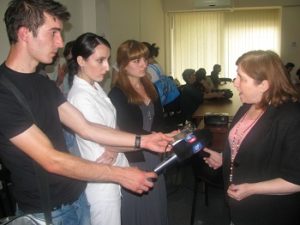LESSON
Lesson Learned: Raising Awareness about Women's Social, Political and Economic Rights in Afghanistan
The Project Document indicated the intention to conduct activities in 15 of 34 of Afghanistan’s provinces, situated in all four geographic regions of the country. In mounting such an ambitious effort, the grantee reduced the prospects for achieving results through a scattering of activities in locations throughout the country. It is apparent that the grantee failed to appreciate the scale of the risk it was taking on. Beyond this, weak integration of activities by project management, and a failure by the grantee to collaborate closely with its implementing partners, limited both the effectiveness and the impact of the project.
Project Partner
Development and Public Awareness
Project Description
The project Raising Awareness about Women's Social, Political and Economic Rights in Afghanistan’s overall objective and outcomes were relevant to the development problem of women’s empowerment and facilitating a greater presence for women in public life. However, the evaluation concluded that the project was not implemented in full. While it appears to be the case that the radio and television roundtables planned for production and broadcast in the 15 target provinces did take place, other activities have been implemented in no more than six, and as few as three, of the provinces.
Report
Evaluation Date
April 2014
Theme
Country
